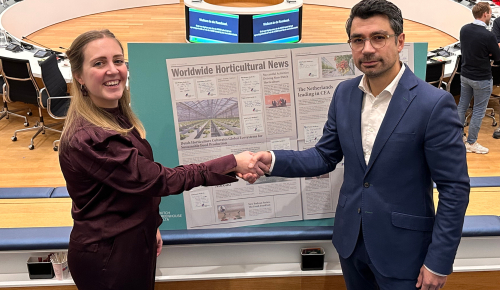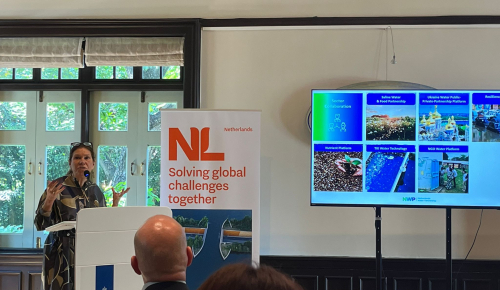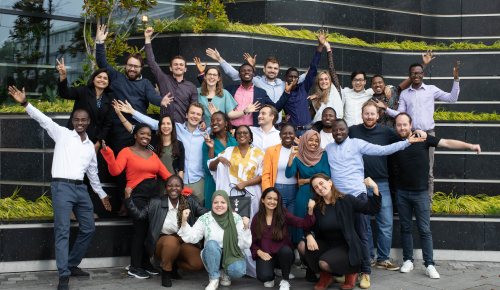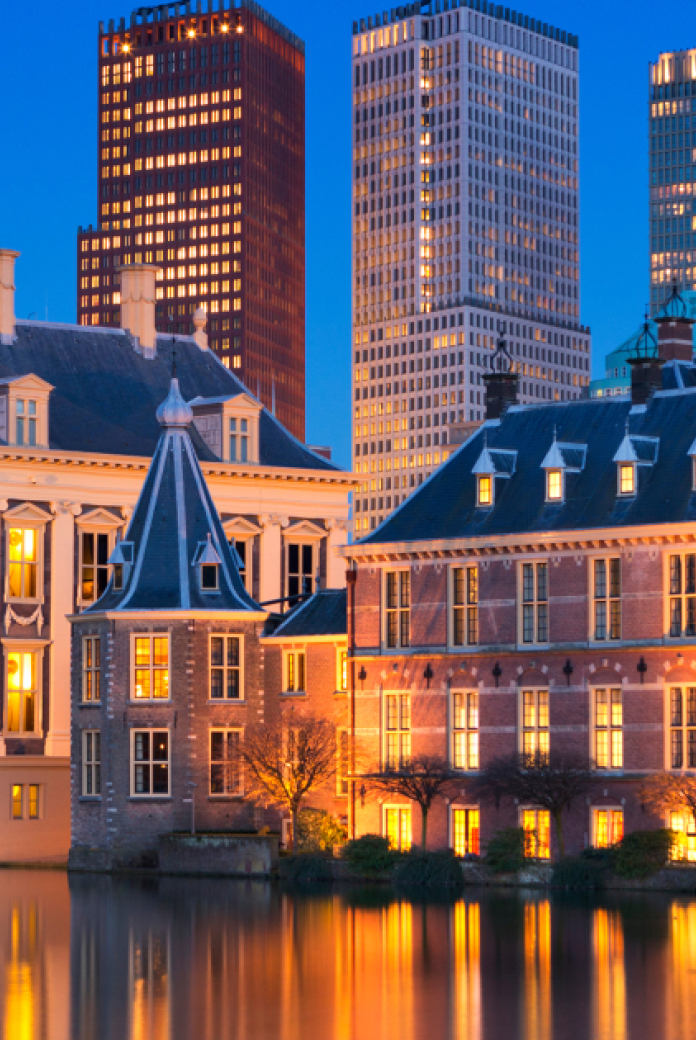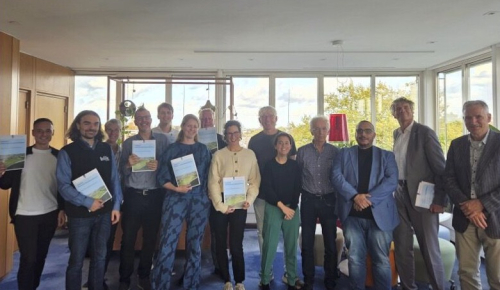Corporate news
29 June 2020Opening the gateway between the Dutch water sector and West African countries
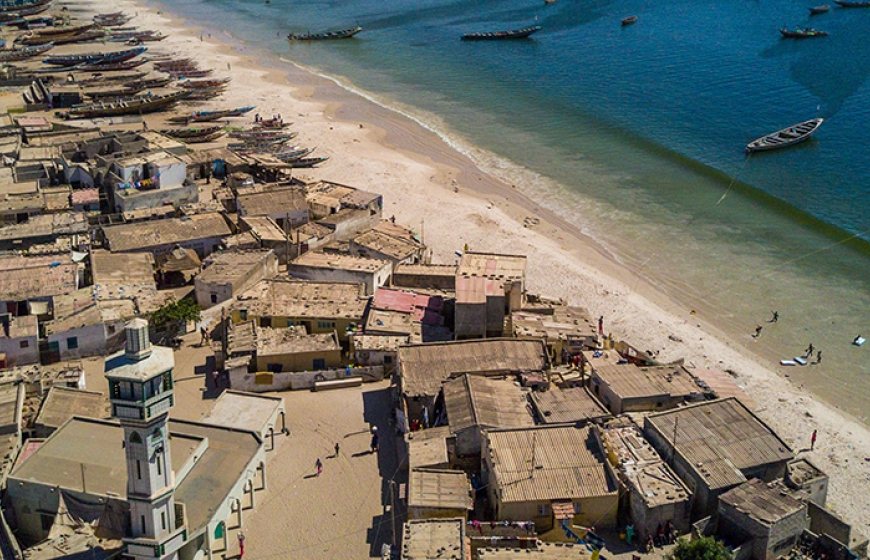
On 29 June 2020, the Netherlands Water Partnership (NWP) and the World Bank signed a Memorandum of Understanding (MoU) to support West Africa’s efforts to build coastal resilience. Developed under the West Africa Coastal Areas (WACA) Program, this marks an important step towards making Dutch expertise in coastal and flood management available to West African countries. Bianca Nijhof, Managing Director at NWP, and Simeon Ehui, Regional Director for Sustainable Development for Africa at the World Bank, sealed the agreement and highlighted how effective coastal management and nature-based climate solutions are at the nexus of economic development and poverty reduction.
West Africa’s coastal challenges
West Africa’s coastal areas face a range of challenges, including coastal erosion, over-exploitation of natural resources, marine and coastal pollution, rapid urbanisation, unsustainable land use, as well as relatively weak environmental governance which needs to be improved. The livelihoods of millions of people in coastal West Africa depend on productive and healthy ecosystems. Unless the coastal hazards are managed, communities will stay vulnerable and less resilient to new shocks.
As such, there is urgency in scaling up coastal resilience across the region and in mobilising financing with international partners through coordinated regional action. The goal of the WACA Program is to respond to these needs. Interventions aim to boost the transfer of knowledge, foster political dialogue among countries and generate public and private finance to ultimately make households less vulnerable to coastal erosion, flooding, and pollution.
A promising partnership
‘’The WACA Program, a portfolio of country engagements and a scale-up platform launched by the World Bank and West African countries, includes mechanisms to maximise the use of international expertise and networks to work towards clear development outcomes and build resilience. To advance the exchange of Dutch knowledge and outstanding expertise on coastal and flood management, an MoU between the World Bank and the Netherlands Water Partnership (NWP) has been established to serve as the conduit to identify technical needs and connect West African countries and their partners to Dutch academia, companies, experts, and technical assistance instruments.”
Due to Covid-19 the signing of the MoU took place online.
A strong first step
“We have long known that addressing the complex development challenges facing West Africa’s coastal communities will require innovative solutions and the world’s best expertise”, comments Simeon Ehui. “We are excited about our partnership with NWP, which is a strong first step in mobilising Dutch expertise and solutions for coastal resilience in West Africa.”
“The objectives of the MoU fit very well with our new strategy, which is centred around the concepts of Share – Connect – Involve,” says Bianca Nijhof. “NWP is working hard to help the Dutch water sector create impact abroad by solving global water challenges and contributing to building more resilient societies. At the same time, we aim to grow the sector’s global reach and business success. Close collaboration with the WACA Program and its international partners will allow us to do exactly that – to share our knowledge and expertise and to work together on improving the coastal resilience of West African communities.’’
During the online signing ceremony, Bastiaan Lammers, Operations Manager at NWP, emphasised the interest of Dutch organisations to contribute to the Program. “We are looking forward to setting up a more structural partnership that will allow us to work closely with the World Bank, West African institutions, the Dutch water sector, and other partners to help move the goals of the WACA Program forward.’’ He also mentioned that, at a more practical level, the MoU can be seen as the kick-off for NWP to start developing concrete solutions and involve the Dutch water sector in opportunities abroad.
Towards a WACA hub
“As described in the MoU, NWP will commit to establish and manage a WACA hub in the Netherlands,” adds Raül Glotzbach, who will be the Project Manager at NWP. “The idea is for NWP to serve as a gateway that helps facilitate the development of new projects. On the one hand it will allow the Dutch water sector to connect to the opportunities, tenders and leads that the WACA Program may offer and, on the other hand, it will be a way for West African countries to find the right Dutch expertise on coastal management and nature-based solutions. It is important to build on ongoing activities, commitments and existing channels supported by the Dutch Government, which is why we will work closely with RVO (the Netherlands’ Enterprise Agency) to set this up.”
In the coming months, NWP will start the inception phase of this promising partnership. Together with RVO, NWP will actively engage with the Dutch water sector to hear about their track records, observations and ambitions in the West-African coastal regions. This should feed into an assessment of connections to be made with ongoing projects, instruments to be utilised to support the WACA hub and a general understanding of the most suitable way to establish the Dutch WACA hub.
Contact us
If your organisation is involved in West African coastal areas or wishes to be involved in the Program, please contact us. We invite you to support NWP and the WACA Program to scale up coastal resilience and welcome your thoughts, ideas, or comments.
Background information
Understanding the issues and opportunities
In October 2019, government officials and specialists from several West African countries took part in a World Bank study tour to the Netherlands on nature-based solutions for water and climate risk management. Organised by NWP, the tour covered perspectives on how the Netherlands is managing its coastline and waters and allowed West African experts and officials to present the challenges they face to Dutch experts and institutions.
NWP also participated in the first WACA Finance Marketplace in November 2019. The event was a response to West African countries’ requests to simplify the process of mobilising investments in coastal resilience. It gave the countries an opportunity to pitch their highest priority investments and technical assistance needs to international partners. This paved the way for a dialogue between World Bank, NWP and partners to start a dialogue that identifies potential new projects and ways to cooperate.
